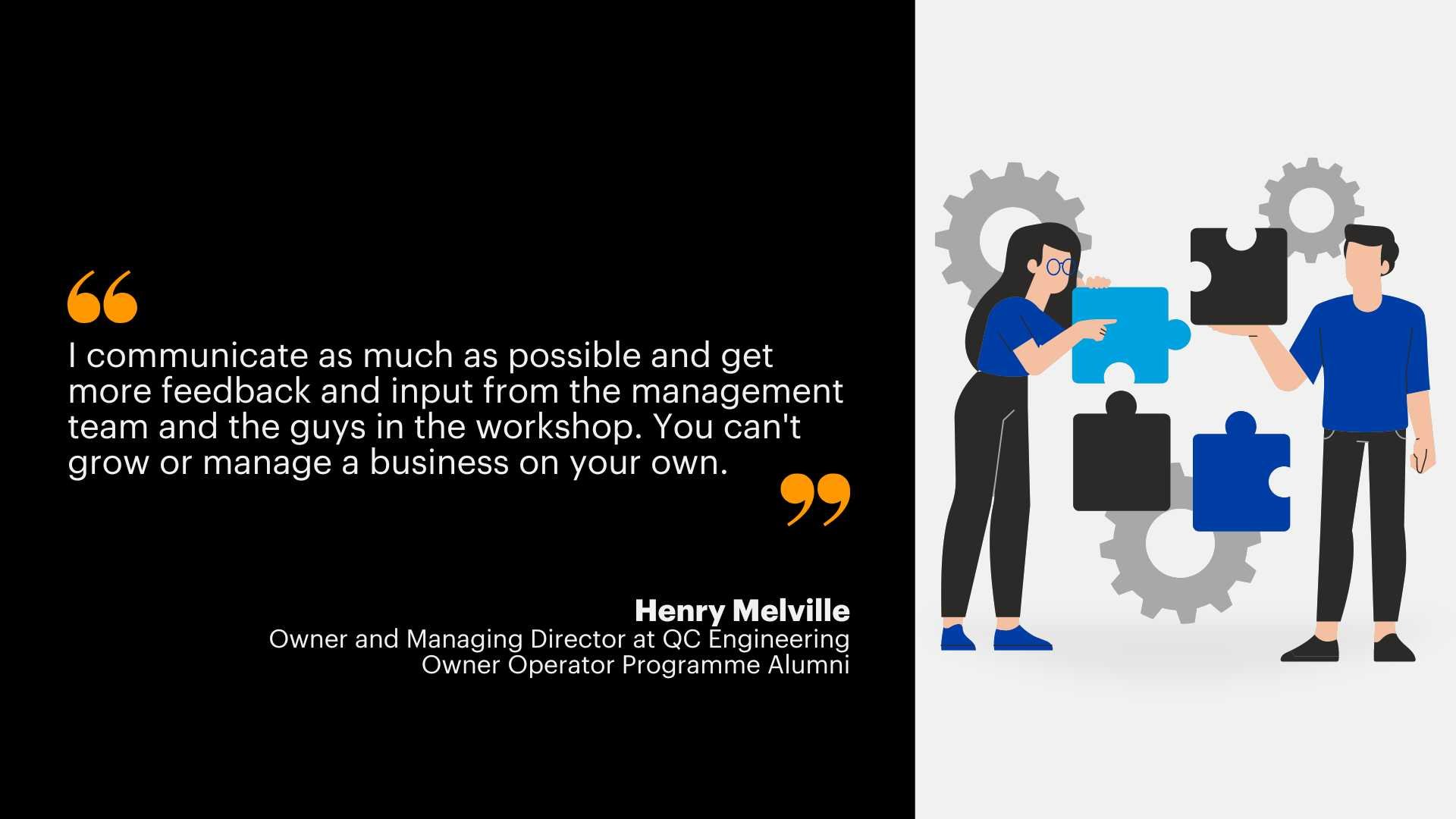
It’s long been established that high-impact leadership training breeds staff loyalty and morale, boosts employee retention and makes teams more productive. New knowledge fills their toolbox, broadens knowledge of the wider business (prepping them for future challenges) and establishes cultures and systems which encourage promotion and pathways for future company leadership.
But do owners truly ‘get it’? Creating the room for leaders to grow their talents has a profound effect on owners and developing the next generation is the top challenge for 55% of CEOs according to a recent survey by Deloitte.

Encouraging, but this tells only half the story, because 41% of business leaders believe that their organisations fail to meet the needed leadership standards (according to the same survey, Global Human Capital Trends), suggesting owners perhaps find it hard to let go or share or release duties, stuck in the mentality of ‘I know best’.
“When you are starting out in your business, it is common to do everything yourself. When the business grows and you hire employees you often still have fingers in many pies. This can be an advantage early on,” says Mel Rowsell, Co-Director for The Icehouse’s Leadership Development Programme.
Owners naturally have a boss mentality and for many it stays with them throughout their careers. It’s common to have a mindset of ‘I’ll do it myself, I’ll do it best and know best’. After all, why waste time briefing or training up someone when it’s quicker and easier to do it yourself? This is a common entrepreneurial trait and one that experts say is best left behind as your ownership journey takes flight.
“When your business gets to a certain point if you continue with this practice, it becomes counter-productive. Your job is to enable those people around you. If you can increase their productivity, engagement and commitment from day one, and they do that with everyone in their team, you see a step change in your organisation,” says Mel.
“This is much easier to do if you equip your leaders with the skills so you can trust that they will get the job done, and importantly, develop their teams to operate efficiently. This means you get to deal with the big strategic questions, building important relationships, and the future of the business – not to mention sleeping well at the end of the day, knowing that the business is taken care of.”
Changing ways of thinking is a positive challenge for owners – understanding fundamentals around teamwork and the shocking revelation that the people you employ are on your side and, just maybe, better skilled and better qualified to perform certain tasks.
“[It’s a challenge] I am still working through, evolving from the operational thought process to action focused, hands on and moving more towards strategic planning and focusing on that big picture and challenges that brings. Letting go of those hands-on things and delegating jobs has been a big challenge,” says Logan Boyce of Indevin and an LDP alumni.
“When you are smaller, it is easier to do it all, but as your business grows, you cannot keep doing it all yourself, you need to bring others into that space.”
As reported in a previous blog, a survey by a US-based small business found that ‘business owners spend 68% of their time taking care of day-to-day tasks rather than working “on their business” and preparing it for growth.’ It outlines two significant problems; ‘Not trusting your employees enough’ and ‘Taking on too much’.
Whether it’s your existing team or the next generation of leaders, they’re working with you, never against you. From that revelatory standpoint, the time comes to help them to help you.
“As a worker in a business, you realise that you are part of what is being created. As a business owner, you need to think about what effects everything we are doing has on each one of those people. Because if one of them falls away, a chunk of your business may fall away. The importance of not just keeping staff happy, it is giving them challenges, it is making sure they are learning,” says Shane Forward, from Wingate Architects and an OMP alumni.
Leaders are not only important but vital. Why make it more difficult for yourself by doing everything yourself? It’s ok not to know everything and it’s fine to admit that you don’t know best… all the time. Developing a mindset where you take your leaders on the journey with you from the first days, sets apart the very successful businesses from the successful ones.
Not all entrepreneurs and owners get to start the process from day one – particularly owners who find themselves in the hot seat unexpectantly, such as Henry Melville, owner and Managing Director at QC Engineering. However, it’s never too late.
“I communicate as much as possible and get more feedback and input from the management team and the guys in the workshop. You can't grow or manage a business on your own,” says Henry.
For information on programmes, workshops and business coaching services from The Icehouse, click here.
For more business ownership and leadership advice, check out more of our resources.
Icehouse Alumni? For exclusive content on Icehouse Central, register now.


